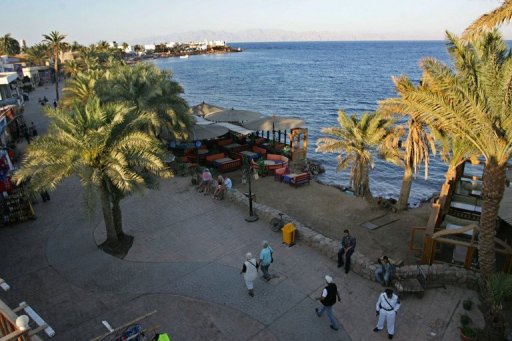No other event looms more heavily over the past decade and a half than the emergence of the novel coronavirus (COVID-19).
The pandemic still tests every country’s capacity to not only protect the health of its people, but their economic well-being as well. Thailand was no exception, and how well the country combatted COVID-19 was determined by how well it had reinforced the various branches of its society in the past. Its success or failure will determine its course for the future.
Call to action
Since tourism is a large part of its economy, Thailand was one of the first countries to feel the economic pressure of the pandemic. Precautions taken to stem the spread of the virus meant that travel had to be limited to only those that were essential, consequently putting tourism on hold.
Thailand’s world-renown hospitality and unparalleled service could do little when there were not as many visitors to enjoy it. Business and investment also dropped as regular exchange between countries were limited.
Thailand’s priority at the offset of the pandemic was to protect the health and safety of its people. The country has been fortunate to have established a strong healthcare system for decades with its universal healthcare widely admired. As such, the health sector was quick to move when called upon.
Both the public and private sector swiftly adopted COVID-19 safety measures, including social distancing and working from home. Gatherings were limited and unessential meetings were done online rather than in person.
In the event that a person was found to be infected, timely quarantine and rigorous contact tracing was conducted. The country’s strong healthcare system and exemplary cooperation from its local communities in the form of village volunteers allowed Thailand to control the pandemic, limiting its impact to small areas.
But most importantly, the Thai public has been the key to its fight against COVID-19. They have adhered strictly to measures recommended by health specialists and scientific guidelines, and the government has been careful to keep the pandemic an apolitical issue.
To this day, out of a population of 70 million people, Thailand has lost less than 100 of its citizens to COVID-19.
Thailand’s success in combating COVID-19 has earned it praise from the World Health Organization (WHO), touting that “Thailand is an excellent example that with a whole-of-government, whole-of-society, comprehensive approach, this virus can be contained”.
At the same time, Thailand has been active on the world stage, sharing its experiences with the international community and pushing for essential mechanisms like the COVID-19 ASEAN (Association of Southeast Asian Nations) Response Fund.
Thailand has also made financial contributions to multiple COVID-19 relief funds such as the UN COVID-19 Response and Recovery Multi-Partner Trust Fund (UN COVID-19 MPTF), and the Access to COVID-19 Tools (ACT) Accelerator.
Furthermore, Thailand has offered to provide COVID-19 test kits to countries that needed them. All of these are aimed at providing much needed support and relief to other countries.
Getting back on the road
Though the negative impacts of COVID-19 cannot be understated and its repercussions likely to reverberate many years ahead, it gave Thailand valuable insight into gaps in its society. Despite the country’s strong performance in the health sector, it became evident that other sectors, like tourism and business among others, could be further diversified through better coordination and greater use of technology.
The future will not only be about fixing these gaps but innovating new and more sufficient ways to maintain a strong society especially in doing business.
Post-COVID Thailand will be focused on what it calls the 3-Re: Restart, Reboot, and Reconnect.
Restart: organising projects and activities to jumpstart the economy and encourage job creation
Reboot: working domestically and internationally to support existing businesses while readjusting practices to align with a New Normal of doing business in a Post-COVID world
Reconnect: reconnecting Thailand’s sub-regional, regional, and global economic ties through e-commerce, international forums, and re-forging global supply chains supported by new technology
To accomplish this, Thailand will be pushing to form a Bio-Circular-Green Economy (BCG Economy) which emphasises reorganising economic resources and streamlining growth by incorporating new technology.
Focus will primarily be on strengthening the agricultural, health, energy, and tourism sectors to ultimately build a robust and sustainable economy capable of absorbing shocks similar to the COVID-19 pandemic.
Going together
Most essential to economic recovery is global cooperation. COVID-19 has shown us just how difficult a world without economic connectivity is, and it is imperative that once COVID-19 ends, countries will need to re-establish ties.
Thailand will work to enhance free trade, as it believes that the free flow of goods will not only provide necessary competitive incentives but access to diverse resources to help strengthen the economy. Health-related issues will continue to be at the forefront of everyone’s mind, and Thailand stands ready to provide support in this area as well.
The pandemic knows no borders, and the impact of an outbreak in a country with less medical resources could easily spread to any corner of the world.
Global recovery and prevention against future pandemics will require mass cooperation with every country to ensure that they are empowered and armed with the resources needed to keep their people healthy and safe.
Hand-in-hand
A post-COVID-19 world must learn from the shortcomings of the past and strive to unify and overcome environmental, societal, and economic obstacles. This will be achieved through a multitude of strategies including but not limited to incorporating new technology, creating sustainable solutions, and continually forging new economic bonds.
Thailand seeks to ultimately recreate itself as one of the economic hubs in the Southeast Asian region to achieve this end just as Egypt seeks to become the economic hub in its region. In doing so, Thailand hopes to play a consequential role in creating a Post-COVID-19 world more unified, more resilient, and more sustainable.
Puttaporn Ewtoksan, Ambassador of the Kingdom of Thailand to Egypt


